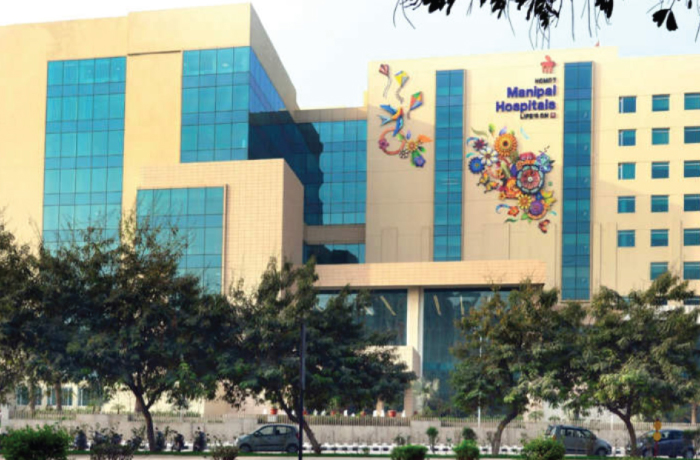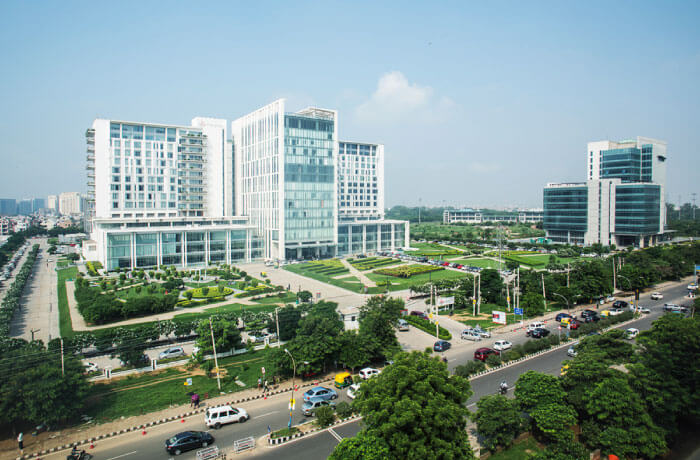Neuro & Brain
Multiple Sclerosis Treatment
Multiple Sclerosis
GetWellGo connects international patients to affordable, advanced multiple sclerosis treatment in India, ensuring expert care and reliable outcomes.
What is Multiple Sclerosis?
Multiple sclerosis (MS) is an inflammatory demyelinating disease which affects the central nervous system (CNS) – brain and spinal cord. It is an ailment that happens when the immune system of the body starts to attack the insulation sheath on nerves known as myelin. This damage interferes with the normal facilitation of impulses along the nerves, which in turn causes different symptoms.
Need for Multiple Sclerosis Treatment
The MS symptoms need to be treated, relapse needs to be prevented and the disease progression needs to be slow down. If the condition is not treated, it will continue to worsen over time and can cause a big decline in quality of life and disability. Here's why treatment is crucial:
- Preventing Relapses
- Slowing Disease Progression
- Managing Symptoms
- Improving Quality of Life
- Minimizing Complications
- Supporting Long-Term Health
Multiple Sclerosis Symptoms
The symptoms of MS can vary dramatically from person to person, depending on where and to what extent the nerve tissue in the CNS is damaged. MS symptoms can start suddenly, or develop gradually, sometimes coming and going (relapsing-remitting MS) and at other times getting worse steadily (progressive).
Common Symptoms are:
- Numbness or Tingling
- Loss of Sensation
- Muscle Weakness
- Muscle Spasms
- Difficulty Walking
- Double Vision
- Memory Problems
- Slow Thinking
- Fatigue
- Bladder Problems
Risk Factors of Multiple Sclerosis Treatment
Treatment of MS is necessary to combat the disease, but does come with risk. Each treatment has its own risks and side effects, including disease modifying therapies (DMTs) corticosteroids, and symptomatic medications. Knowing these risks helps patients and its healthcare partners to make well informed decisions.
- Flu-like Symptoms
- Injection Site Reactions
- Chest Tightness
- Slow Heart Rate
- Nausea
- Diarrhea
- Reduced White Blood Cell Count
- Hair Thinning or Loss
- Allergic Reactions
- Weight Gain
- Increased Blood Sugar Levels
Cause of Multiple Sclerosis
While the exact cause of MS is not known, it is believed to be a multifactorial (multi cause) disease developing due to a combination of genetic, environmental and immune system factors. Below are the key elements that may contribute to the development of MS:
- Autoimmune Reactions
- Family History
- Specific Genes
- Vitamin D Deficiency
- Infections
- Smoking
- Obesity
Facilities and Services Offered to International Patients for Multiple Sclerosis Treatment
Patients from countries such as Canada, Germany, Ireland, Norway and other areas are increasingly travelling to India to access world class treatment at a fraction of what it would cost in their home countries. India emerged as a global hub for advanced medical care, providing autologous stem cell transplantation, innovative disease modifying treatments with an array of rehabilitation programs that are focused to the complexities of MS, which is being undertaken in equipped with the state of the art technology and the manpower such as the highly trained neurologist and multidisciplinary team to deliver it. The expertise draws the patients, but it’s also the holistic approach to healing, including yoga and Ayurveda. Treatment in India is also cheaper, waiting time is shorter and international patient services, including visa assistance, multi-language staff, and culturally sensitive care, are available. In many cases, it’s a journey that satisfies a need for the best medical excellence and compassionate care, helping people turn their condition around significantly and enjoy an improved quality of life.
Multiple Sclerosis Types
MS is divided into several categories depending on the manner in which the condition develops, the signs, and the number of relapses. Knowledge of the type of MS assists in managing expected response to therapy and life duration.
Relapsing-Remitting MS
- The most common type, found in about 85% of the patients at the time of diagnosis of the disease.
- It is a disease with exacerbations (details, new or aggravated symptoms) and remissions (partial or complete recovery).
Secondary Progressive MS
- Emerges in patients with a first diagnosis of RRMS.
- Characterized by a steady deterioration of the signs and the brain and spinal cord function either in an intermittent manner.
Primary Progressive MS
- Known to affect approximately 10-15 percent of multiple sclerosis patients.
- Defined clinically by gradual progressive increase in symptoms from the time of onset without well-defined relapses and remissions.
Progressive-Relapsing MS
- Silent or smoldering MS, which is now considered a subtype of PPMS in the recent classification systems.
- Characterized by gradual neurologic dysfunction from the onset with clear acute exacerbations.
Clinically Isolated Syndrome
- An individual event related to the inflammation or demyelination of the nerves located in the CNS.
- It is not diagnostic for MS unless more lesions are appreciated on MR imaging or symptoms reappear.
Radiologically Isolated Syndrome
- Diagnosis of asymptomatic but MRI detectable lesion resembling MS in an individual without a history of the disease.
- Commonly found incidentally during imaging for other ailments to the patient.
MS Treatment
Bone Marrow Transplantation for Multiple Sclerosis (MS)
The promising therapy for the treatment of MS is an autologous bone marrow transplantation or Autologous Hematopoietic Stem Cell Transplantation (AHSCT), an experimental treatment aimed to stop MS progression when the immune system is rebuilt. This is regarded for the progressive type of Multiple Sclerosis, which does not respond to conventional treatments well.
Procedure
Patient Selection:
- Contraindicated in cases of primary progressive MS (PPMS) or progressive-relapsing MS but is effective in patients with RRMS or highly active MS.
- For this diagnosis, the candidate has to have confirmatory indications of active disease that persists despite conventional treatments, such as more frequently relapses or new MRI lesions.
Stem Cell Harvesting:
- Stem cells can be harvested directly from the patient’s blood or from bone marrow using a treatment called apheresis.
- The cells are stored in the deep freeze and can be reinfused later.
Conditioning (Chemotherapy):
- Based on the usage of high-dose chemo, its main function is to eliminate or suppress any evidence of immune function.
- This rid the body of autoreactive immune cells which target the myelin sheath for destructions.
Stem Cell Infusion:
-
These stem cells are collected and then returned back into the patient to create a new and healthy immune directing network.
Recovery:
- The immune system is constantly replacing itself but takes weeks to several months to do so.
- This period is most vulnerable to infections and therefore requires frequent observation by health care givers.
Multiple Sclerosis and Therapies
Treatments for multiple sclerosis (MS) are used to alleviate signs and symptoms to prevent relapse and possibly control the course of the disease. MS therapies fall into three main categories: disease modifying therapies (DMTs), relapse management therapies, as well as symptomatic therapies. Moreover, additional conventional and innovative treatments may also help improve the situation.
Disease-Modifying Therapies: Current DMTs act on the root cause of autoimmune process in MS with the goal to decrease the number of relapses and postpone the clinical worsening. They are very useful for relapsing-remitting MS, but may also do some good for secondary progressive disease. There are three types of therapies: Injectable Therapies, Oral Therapies, and Infusion Therapies.
Relapse Management Therapies: Recurring symptoms in those with MS are managed in order to minimize the intensity and length of the episode.
- Corticosteroids (e.g., Methylprednisolone): High-dose steroids are used for the suppression of inflammation in the course of an acute relapse.
- Plasma Exchange (Plasmapheresis): Employed in acute attacks if corticosteroids are not beneficial.
Symptomatic Treatments: Management of symptoms can help enhance the quality of life of the patient with MS. Symptoms such as:
For Muscle Spasticity and Stiffness:
- Oral or intramuscular baclofen, intravenous or intramuscular Tizanidine, or physiotherapy.
- Use of botulinum toxin for focal spasticity.
For Fatigue:
- These could include drugs like, Amantadine or even Modafinil among others.
- Affinity from changes in life patterns through the methods of containing exercises and applying energy sparing measures.
For Pain:
- Under neuropathic pain, the medications prescribed are Gabapentin or Pregabalin.
- Including paracetamol and other non-steroidal anti-inflammatory drugs commonly used for musculoskeletal pain.
For Bladder and Bowel Issues:
- Overactive bladder medications of the anticholinergic type.
- Laxatives remedies or diet change for constipation.
For Cognitive Symptoms:
-
Memory rehabilitation techniques one of them being cognitive rehabilitation.
Best Hospitals for Multiple Sclerosis Treatment in Delhi
- Artemis Hospital, Gurgaon
- Medanta-The Medicity, Gurgaon
- Fortis Memorial Research Institute, Gurgaon
- Max Hospital, Saket
- BLK-Max Super Speciality Hospital, New Delhi
Best Doctors for Multiple Sclerosis Treatment in Delhi
- Dr. Sumit Singh
- Dr. Anirban Deep Banerjee
- Dr. Praveen Gupta
- Dr. (Col) Joy Dev Mukherji
- Dr. Atul Prasad
Why Choose GetWellGo for Multiple Sclerosis Treatment?
GetWellGo is an ideal solution provider for international patients for comprehensive and modernized treatment for multiple sclerosis (MS). Thus, GetWellGo provides the latest in medical care, individualized services, and international knowledge to make the service accurate for the patient with MS.
- Top Neurologists
- Advanced Treatment Options
- Affordable and Transparent Pricing
- Visa Assistance
- Travel Arrangements
- Airport Transfers
- Accommodation Coordination
- Multilingual Support
TREATMENT-RELATED QUESTIONS
GetWellGo will provide you end-to-end guidance and assistance and that will include finding relevant and the best doctors for you in India.
A relationship manager from GetWellGo will be assigned to you who will prepare your case, share with multiple doctors and hospitals and get back to you with a treatment plan, cost of treatment and other useful information. The relationship manager will take care of all details related to your visit and successful return & recovery.
Yes, if you wish GetWellGo can assist you in getting your appointments fixed with multiple doctors and hospitals, which will assist you in getting the second opinion and will help you in cost comparison as well.
Yes, our professional medical team will help you in getting the estimated cost for the treatment. The cost as you may be aware depends on the medical condition, the choice of treatment, the type of room opted for etc. All your medical history and essential treatment details would be analyzed by the team of experts in the hospitals. They will also provide you with the various types of rooms/accommodation packages available and you have to make the selection. Charges are likely to vary by the type of room you take.
You have to check with your health insurance provider for the details.
The price that you get from GetWellGo is directly from the hospital, it is also discounted and lowest possible in most cases. We help you in getting the best price possible.
No, we don't charge patients for any service or convenience fee. All healthcare services GetWellGo provide are free of cost.
Top Doctors for Neuro & Brain
Top Hospitals for Neuro & Brain
Contact Us Now!
Fill the form below to get in touch with our experts.



%20Joy%20Dev%20Mukherji.jpg)



